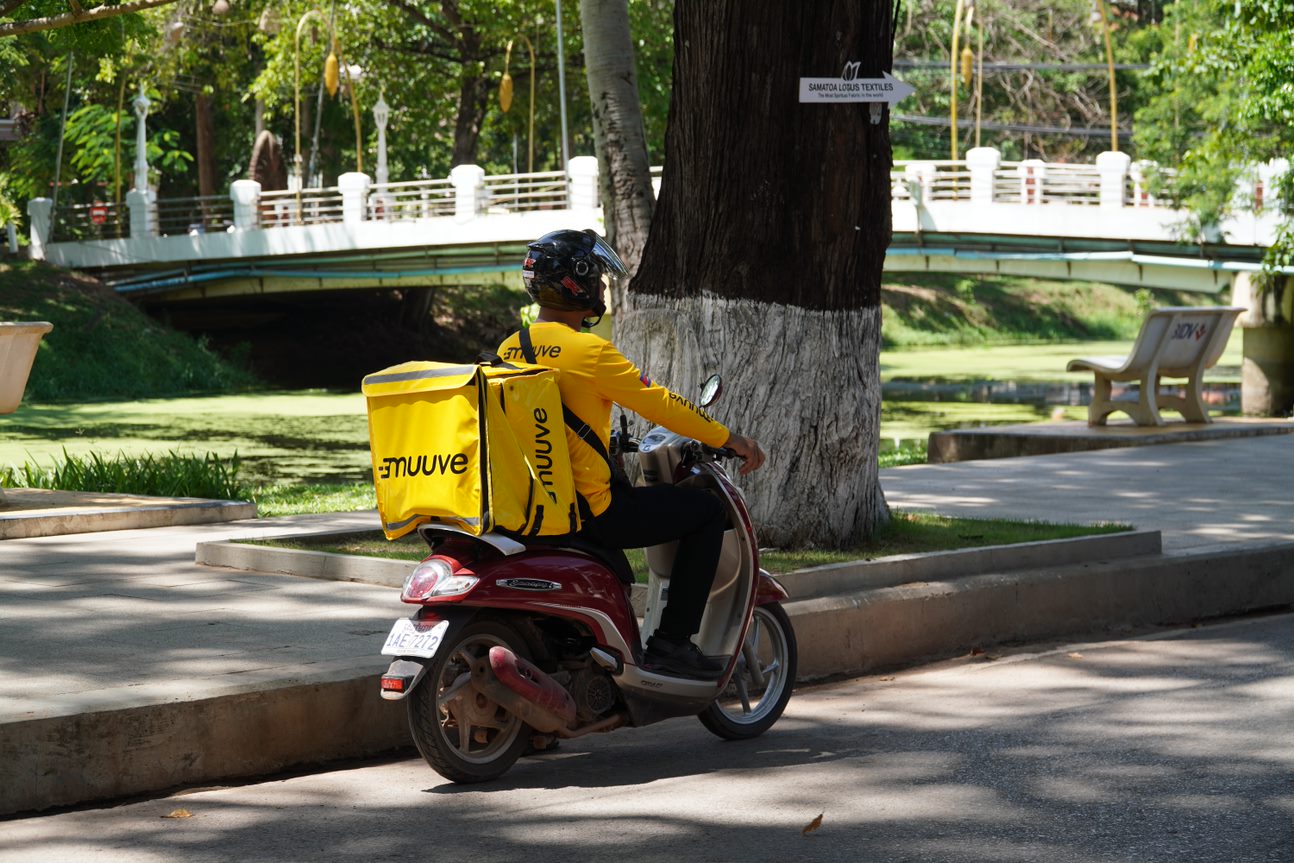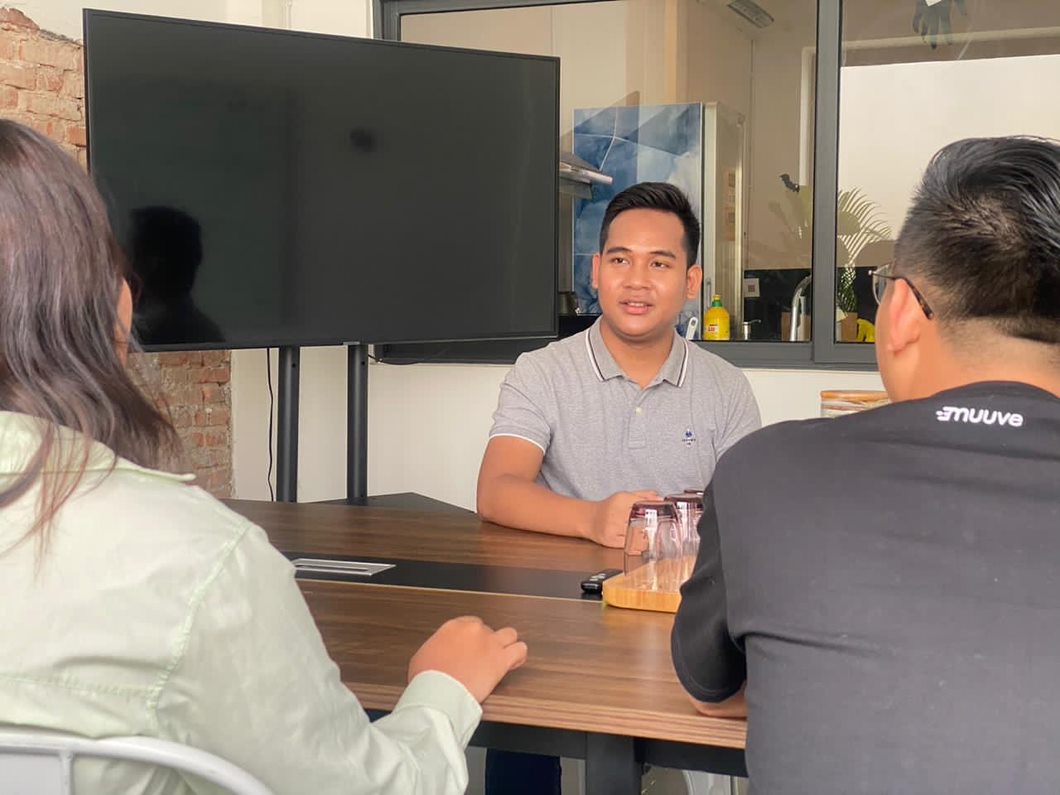Let us know what type of content you'd like to see more of. Fill out our three question survey.
Digital Innovator Series: Talking About Life After an Accelerator with Muuve’s Phanith Phan
This post is one of a series of posts on Digital Innovator.
Nov 18, 2020
We recently spoke with Phanith Phan, the CEO of Muuve, an innovative delivery services startup in Cambodia. Muuve was one of the startups involved in the 2019 Smartscale by Seedstars accelerator, co-funded by the U.S. Agency for International Development-funded Development Innovations project and telecommunications company Smart Axiata. This accelerator model was investor-led and focused on connecting scalable tech startups to mentors, investment advisory services, and targeted technical assistance. Muuve is one of Cambodia’s success stories in a growing digital ecosystem—even through the COVID-19 pandemic. The young team also secured investment from Cambodian venture fund, OOCTANE, a few months after finishing the accelerator in 2019. This is an excerpt from that interview.

One of Muuve’s network of more than 60 drivers delivers goods in Cambodia’s second-largest city, Siem Reap.
Q: First, tell our readers about Muuve. When did you get started? What problem were you trying to address in Cambodia?
A: “Muuve is a local delivery service startup founded by a group of young Cambodians. We wanted to provide people with busy lifestyles easier, efficient, and more convenient ways to complete tasks. It was founded in March 2018 and established in September 2018.”
Q: As you’ve grown the startup, what kind of challenges have you faced?
A: “Our challenges have been lack of financial support (investments) and lack of mentorship in terms of guiding us through the fundraising process and getting product-market fit.”
Q: What has been your biggest win?
A: “We’re proud that we’ve introduced an on-demand/freelancing delivery partner model to help Cambodians earn extra income, similar to the gig economy model, and it has helped us grow the business. This is still a new concept in Cambodia, but, for example, it allows a tuktuk [motorcycle rickshaw] driver to choose to deliver extra food through Muuve during the day for additional income.”
Q: Many Cambodian startups and businesses have been negatively affected by COVID-19; some were forced to transform digitally overnight, many others were forced to cut staff, or even shut their businesses. What about Muuve?
A: “Muuve was already a tech startup, so nothing changed that way. We have [actually] seen significant growth in terms of numbers of orders during 2020. We also helped more than 250 restaurants to go digital with our platform during COVID-19. It happened because people took precautions seriously and the only way they could eat food from their favorite restaurant was to order from a delivery company.”

CEO Phanith Phan is expanding his team in Phnom Penh to serve the growing demand for delivery services.
Q: How do you stay connected to your customers?
A: “We love to hear from our customers. That’s why we usually communicate directly with [them] in a variety of ways—from social media to phone calls. We do believe that truly listening to and communicating with our customers enables us to build something that customers truly love.”
Q: Our readers may not know that you all were one of the startups that went through the intensive investor-led accelerator—SmartScale Powered by Seedstars—in 2019. What was most useful for you all about SmartScale?
A: “We’ve learned a lot during the accelerator program starting from assessing product-market fit, and learned how to build a sustainable business with healthy unit economics, and practical fundraising strategies.”
Q: What’s next for Muuve in 2020 and beyond?
A: “We want to drive the logistics industry to be more accessible—and meet the demand for e-commerce. At the same time, we want to help chefs open their dream restaurants by providing financial and material support through our company.”
Q: As you know, DAI works hard to make sure its digital programs are demand-driven. So, I want to ask for your advice. What do Cambodian startups and businesses need from the development sector right now?
A: “I think Cambodian startups need more accelerator programs to kick off their startup journey—startups need programs that help [us] think through [our] financial models and plans, strategize for growth, and provide ongoing mentorship so we get the processes right from the beginning. We also need access to mentors at critical moments as we grow, not only during the accelerator.”